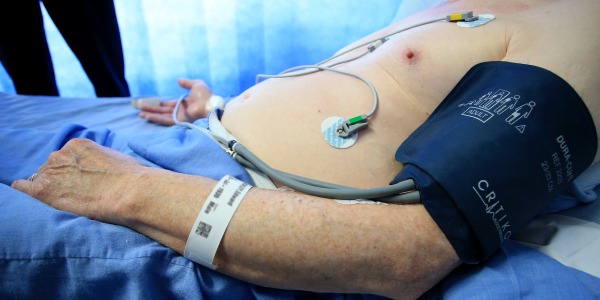Cancer sufferers in Ireland can live or die depending on how much money they have, the country’s leading cancer charity has warned.
In a bleak rebuke of the “two-tier” health system, a new study by the Irish Cancer Society reveals the less wealthy can be forced to wait up to 20 times longer for potentially life-saving tests.
The charity said early diagnosis of cancer is often crucial to the patient’s chances of survival.
Donal Buggy, head of services with the Irish Cancer Society, said the majority of Irish people do not have private healthcare and are denied early tests for the disease.
“The grim reality of our healthcare system is that the difference between life and death can come down to your ability to pay for healthcare,” he said.
“This situation is striking in its unjustness but has been the modus operandi which has defined our health services for decades.”
The Irish College of General Practitioners carried out a survey of GPs around the country to gauge access to testing for suspected cancers.
The findings confirm a “stark divide” between those who can afford private health insurance and those who cannot, says the Irish Cancer Society.
Public patients are forced to wait up to 480 days – or 96 working weeks – for critical tests such as abdominal cancer diagnosis. Private patients have to wait just five days on average.
Waiting-times for brain scans are 20 times higher in the public health system than for those who can afford private care.
Nine out of every ten GPs surveyed for the study agreed that a patient’s ability to pay played a role in their treatment.
They complained about “unacceptable delays” in getting several cancer tests and warned diagnosis for gynaecological, neurological, urological and head and neck cancers was “particularly problematic”.
About 46% of the population has private health insurance.
“We know from the many cancer patients and survivors who have shared their stories with us that our two-tier system of healthcare leads to huge differences in outcomes based on whether you can afford to pay for private health insurance or not,” said Mr Buggy.
“This report makes clear that GPs working right across the country and in all socioeconomic areas face a struggle in securing timely tests to diagnose public patients”.
One in three people in Ireland will develop cancer at some stage, with an average 30,000 new cases diagnosed every year. That number is expected to rise to 40,000 within the next four years.
The Irish Cancer Society has demanded public access to cancer tests within 28 days around the country.
“Early diagnosis often means a cancer is more likely to be treated successfully, intervention will be less complicated and chances of survival may be higher,” said Mr Buggy.
“However, for the majority of the population without access to the private system, they may have to face lengthy waits that deprive them of early access to either a diagnosis or peace of mind.”
Sinn Fein’s health spokesman Caoimhghin O Caolain said the findings expose an “immoral” lack of fairness in health care.
“This is not acceptable,” he said. “Inability to pay should not deny anyone the opportunity to lead a full, long, healthy life.
“The extreme depth of inequality in our health services is immoral and cries out for urgent address.”
